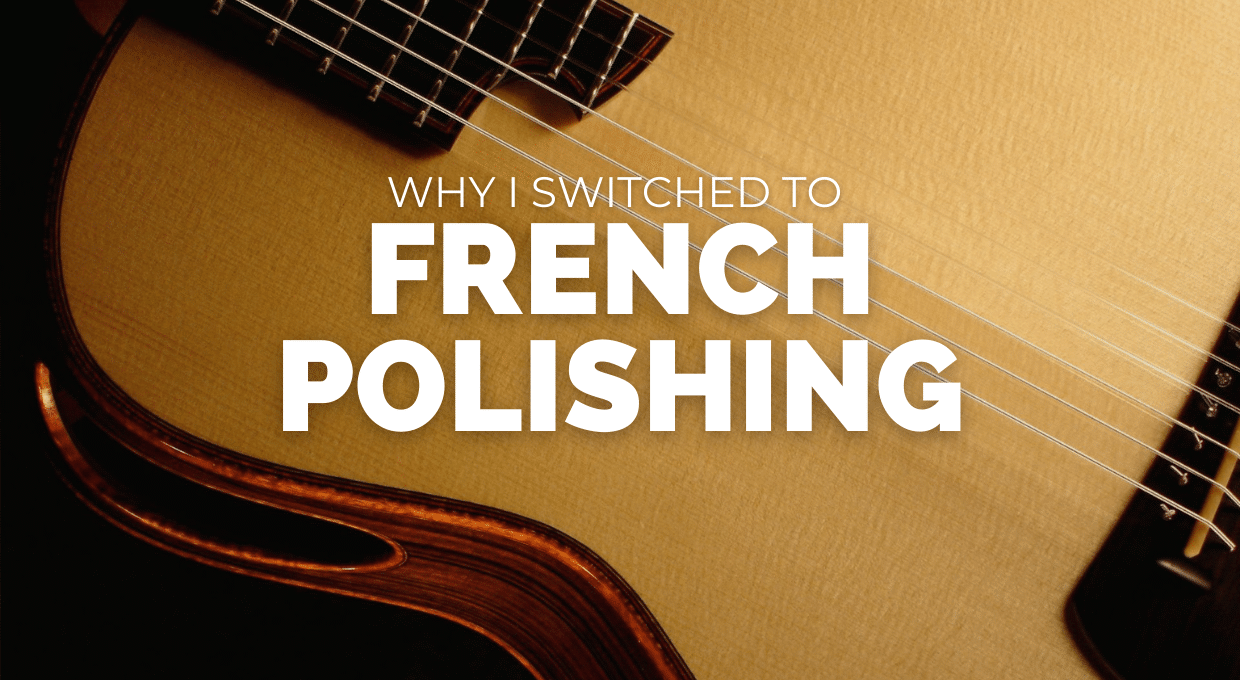
And for that matter, does any finish really make that big of a difference to the sound of a guitar?
Which guitar finish should you use for your guitars?
Today, I’m going to share a story about the fateful day when all of those questions became crystal clear to me in an instant and set me on a path that drastically improved the quality of my guitars and revolutionized the way I work.
My hope is that the story I am about to share with you today in this article I will provide valuable insights and food for thought on how the choice of our guitar finish choices can affect the sound, especially if it is French polished shellac, and a reminder to look for the opportunities hidden in the hardships.
A Little Background
One day, as I was mixing up my shellac and making preparations to start a new finish, I was reminded of a life-changing and pivotal series of events that happened years ago when I made the decision to French polish all of my guitars from that moment on.
Until that fateful day (around 2007 or so), I had tried French polishing a few times, but back then, it was such a struggle to get results that were good enough for my standards.
I read everything I could find about it but was unsure which method was the best. (I wish I would have had this to help me figure it out)
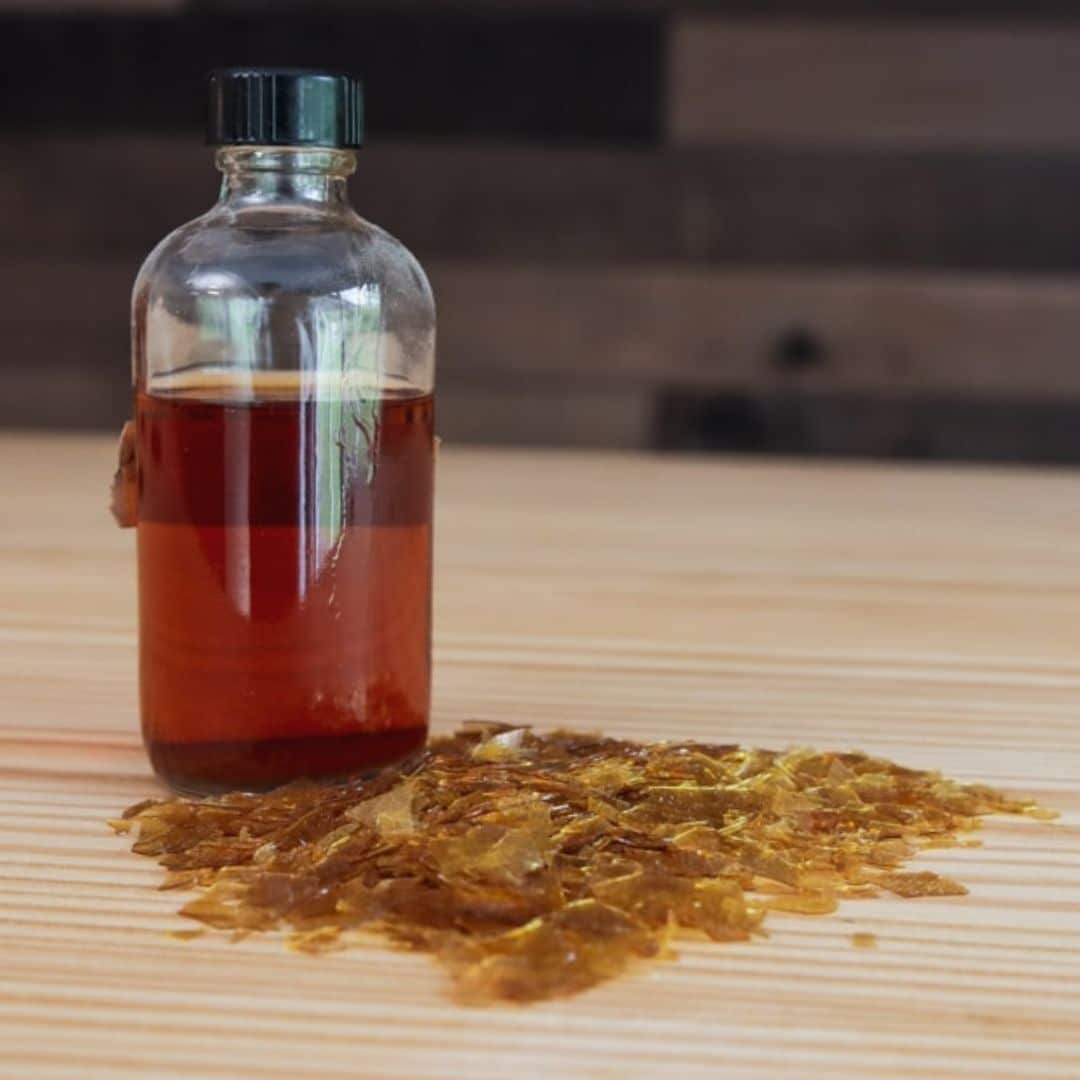
It was a never-ending process of trying different techniques and approaches, never settling or mastering any one specific way, and constantly doubting the current methods I was trying.
I always got the job done, and it did turn out great every time, but the process was touchy and very time-consuming. So, I always fell back to spraying nitrocellulose lacquer, which is what I was used to back then.
But something inside me kept drawing me to French polishing, and even though the Nitro looked great, I wasn’t happy with the toxicity and other quirks of using it.
(I also got sick from overexposure to it once and lit my house on fire from the overspray, which didn’t exactly make me love spraying it—but that’s a story for another time)
Free Download
The Shellac Handbook
Free Download
The Shellac Handbook
Your Information is 100% Secure And Will Never Be Shared With Anyone. You can unsubscribe at any time. Here’s a link to our privacy policy

That Fateful Day…
As I bent down to place the guitar into its case and say my goodbyes, a fluorescent light on the ceiling reflected at just the right angle…
At that moment, I saw some issues down inside the finish where tiny bubbles had formed over each pore on the guitar top.
It was tough to see, but it was there, and now that I knew it, I could not ship the guitar that way in good conscience.
Here’s where it gets interesting, AND the part that transformed this situation from a massive problem to a great opportunity, though I didn’t even realize it at first.
Let me explain…
Before I saw the finish issues, I had the strings on that guitar for over a week when it was fully finished with that very thin coat of nitrocellulose lacquer, as I had done on many other of my nylon string guitars.
During that period, I set aside time each day to get quiet and play and listen deeply to the guitar and take notes on it.
I do this to identify ways to improve future guitars and learn what parts of the voice and responsiveness I like and want to retain.
I was thrilled with how the guitar sounded and felt it was the best one I had built to date.
So when I saw the issues in the finish, I was devastated, and it seemed like a true tragedy. I didn’t feel good about respraying it because I felt that the bubbles might happen again.
The Nitro finish was very thin, and I decided it shouldn’t be too hard to strip it off the guitar top and French polish it with Shellac instead.
So I got to work…
The funny thing is that what started as a tragedy, realizing on the day before shipping it that my guitar had to be refinished, in the end, turned out to be a rare opportunity to play and hear the same guitar with both types of finish on it.
What I discovered from this experience was astonishing and was life-changing for me, professionally and personally.
It’s Alive!
The French polishing process was challenging, as usual, because I hadn’t yet met my mentor, Eugene Clark, and learned the subtle art of French polishing from him.
Nor did I have any clue that this one event would change the course of my life and thrust me into a new direction.
But despite the challenges in French polishing, I thoroughly enjoyed the process, and the finish was stunningly beautiful with all the natural fire and chatoyancy that Shellac and oil bring.
If that extra visual fire and deep glossy shine were all I gained from the process, I would have been thrilled, but fortunately, there was much more that the shellac French polish added as well, which I didn’t discover until the strings were back on the guitar.
After the finish was completed and cured, I strung and tuned up the guitar, sat down to listen to it, played in the strings a bit, and got things stabilized and ready for its new owner.
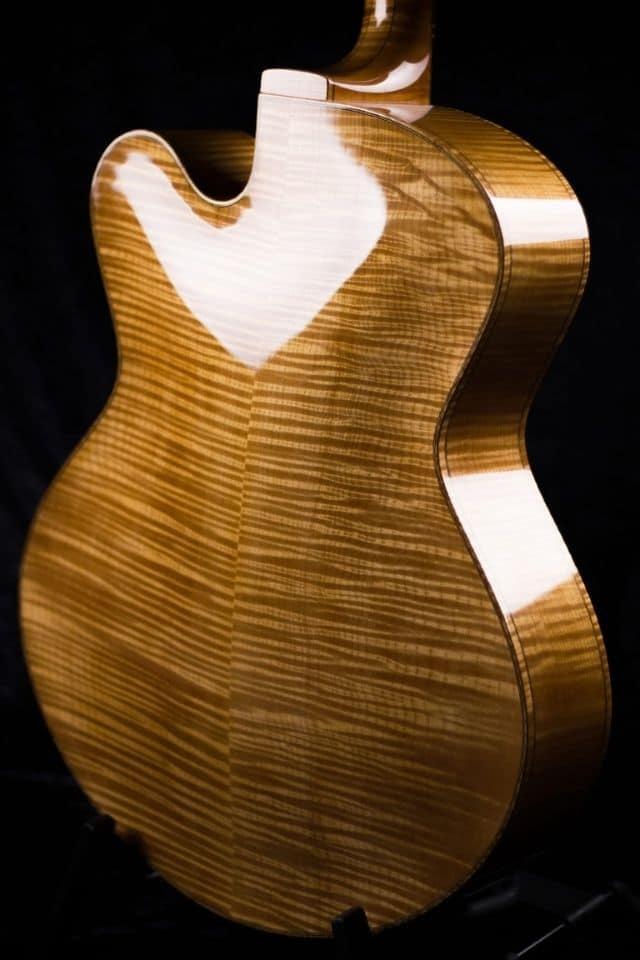
To my amazement, something truly magical had happened to it that was completely unexpected…
The guitar sounded even better—its voice was alive in a whole new way!
I could hear what felt like every grain of the wood, every breath of air that pulsed in and out of the sound hole, and even the lightest touch of the string produced a voice full of complexity and woody richness.
The French polish had utterly transformed the look AND the guitar’s sound in ways I would have thought impossible.
I realized that even though French polishing was more difficult and took longer to apply, if I genuinely wanted to get the best possible result from my guitars, I would have no other choice but to commit to only French polishing from that moment on.
A New Door Opens (Meeting My Mentor)
Interestingly, once I made that commitment to French polishing, less than a year later, a seemingly impossible chain of events took place that enabled me to go to Tacoma, Washington, and spend time studying under luthier Eugene Clark in his workshop, even getting to French polish some of his guitars.He was a living legend and widely known as one of the best French polishers in the world.
Not only did he teach me his techniques and formulas for French polished Shellac finishes, but he became my good friend and mentor in all things lutherie (and many things about life, too) until he passed away years later.
I am so thankful for his friendship and all those years I got to continue learning from him during our long talks about life and lutherie.
I will forever be grateful to him for the gift he gave me as he downloaded his many years of hard-won lessons and skills to me.
He helped me to transform my French polishing from a difficult process to one I look forward to, and that brings me so much enjoyment each day, and, of course, one that improved the voice of all my guitars even further.
Enjoying Each Step of The Journey
As I learned more, I discovered that with the proper techniques and a deeper understanding of the “why” behind them, a properly applied French polish finish brought all of my guitars to life in new ways.
My archtops, steel strings, and, of course, nylon string guitars all came alive (as did I, in a way) once I began to work toward perfecting my French polish finishing and learned to slow down and enjoy the process.
I have French polished nearly every guitar since that day.
Now, each time I prepare to start a new French polish session, I am thankful for that fateful day when I saw those tiny bubbles in that Nitro finish.
All these years later, I still spend those quiet hours polishing my guitars each morning and enjoy the deep satisfaction of knowing I am giving them the most beauty and the best voice I possibly can.
I am also thankful that French polishing is no longer a struggle but one of my life’s great pleasures.
It turns out that, with the proper technique and understanding, it’s really not hard at all.
Final Thoughts & How To Learn More About French polishing
I also hope it was an encouraging reminder to search for the opportunity hidden in the hardships.
That struggle you’re facing right now might be the springboard that will catapult you to the next level in your guitar-making and in your life.
If you would like to learn more about French polishing,
here are some resources for you to check out:
Free Guide To French Polishing
French Polishing Online Course


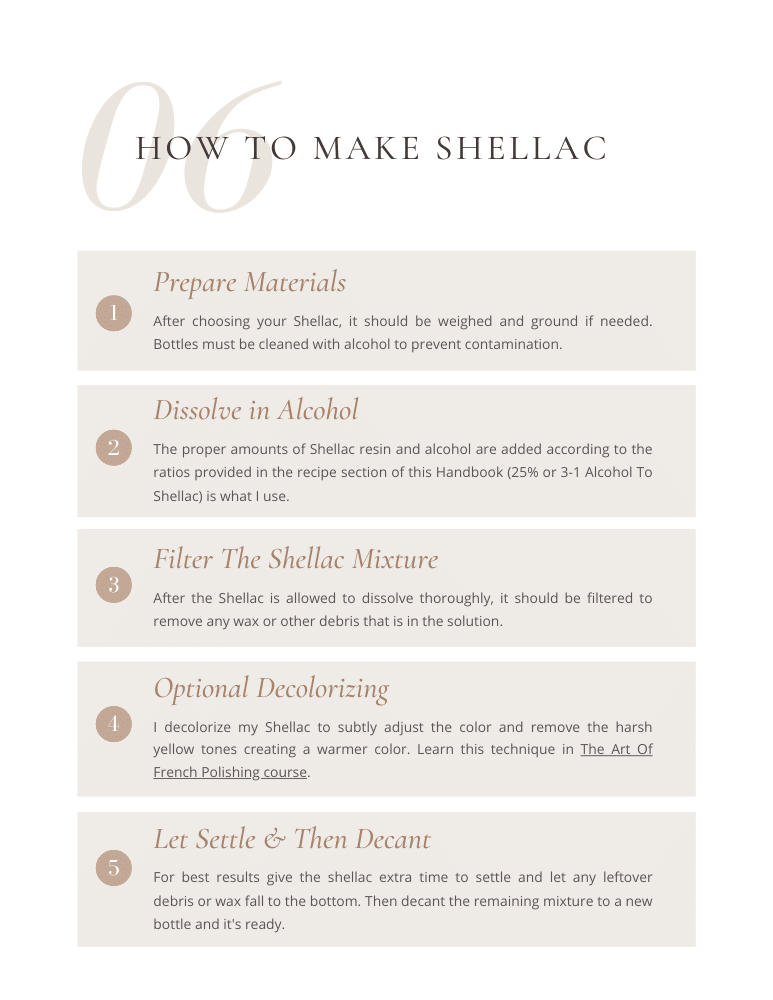
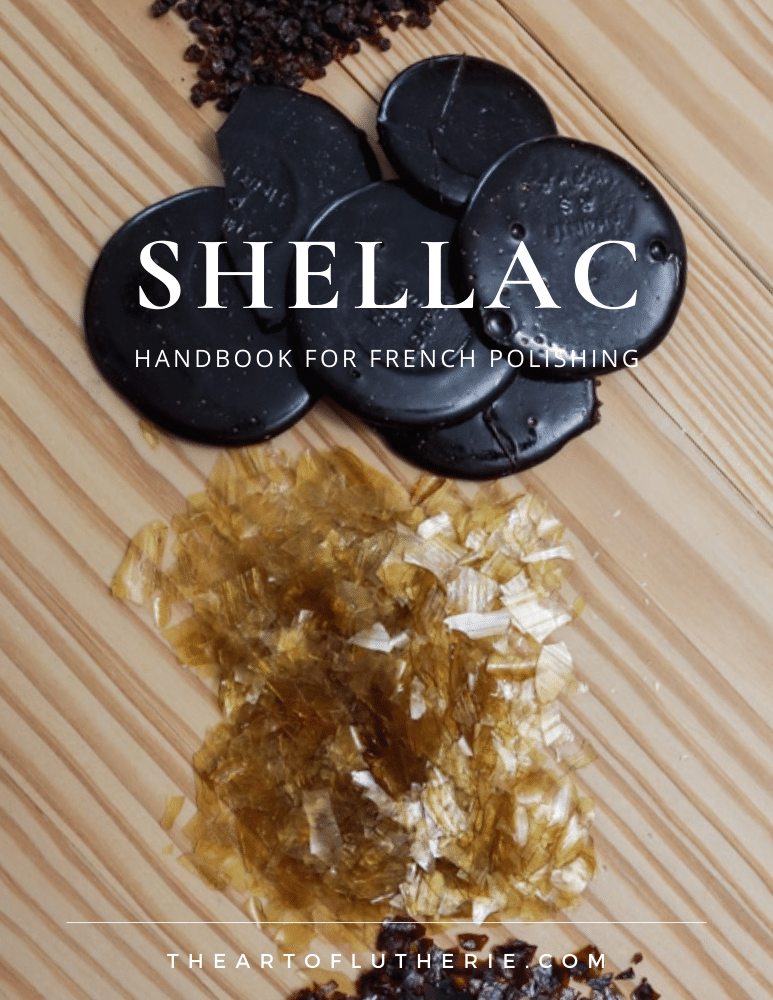




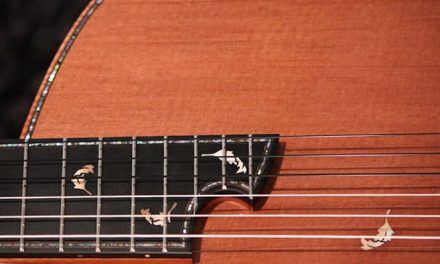

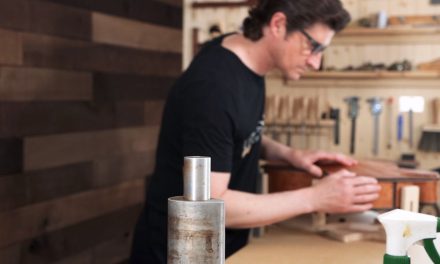
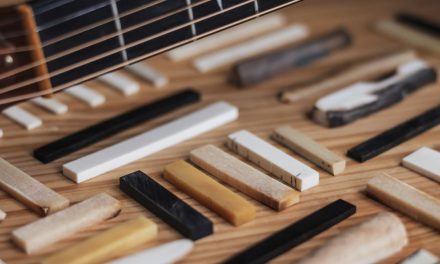
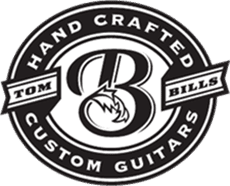
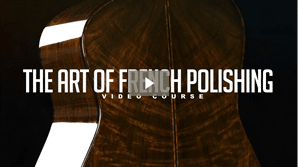

Hi Tom.
Sorry to bother you but I’ve been getting things gathered up for French Polish. I know you said Everclear was getting hard to get. I have looked in three states with no results. Is there some place it can be ordered. Or can a person use moonshine I can get that.
Thanks Jerry.
Hi Jerry, I have never tried moonshine for making shellac for French polishing so I can’t say for sure, but try searching for the Everclear online and see if you can buy it and have it shipped to you. If that doesn’t work you could also try searching for laboratory supply companies that sometimes have pure ethanol that’s at least 190 proof which is basically what Everclear is. Hope that helps! Tom
Hard shellac is great stuff, it’s far more durable than conventional shellac with all the benefits